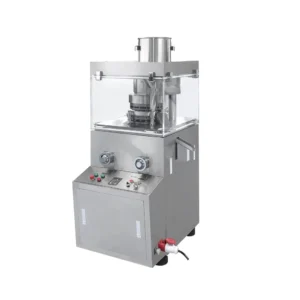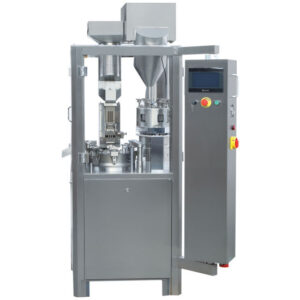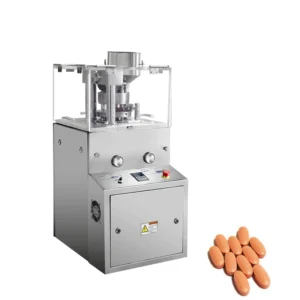Description
| Parameter | Specification |
|---|---|
| Model | GMS-A |
| Oven Type | Tunnel Oven |
| Heating Source | Gas or Electric |
| Temperature Range | 50°C to 300°C (122°F to 572°F) |
| Conveyor Belt Width | 600mm to 2000mm (23.6 inches to 78.7 inches) |
| Tunnel Length | Customizable, typically 5m to 30m |
| Heating Zones | Multiple zones for precise temperature control |
| Conveyor Speed | Adjustable |
| Construction Material | Stainless Steel |
| Control System | PLC (Programmable Logic Controller) with touchscreen interface |
| Safety Features | Emergency stop buttons, overheat protection, flame failure detection |
| Optional Features | Steam injection system, cooling zone, exhaust system |
| Power Requirements | Dependent on size and configuration, typically 3-phase electricity or gas supply |
| Certifications | CE, ISO |
Understanding GMS-A Tunnel Oven
The GMS-A Tunnel Oven is a modern piece of equipment that is used in industrial settings for baking, drying curing and other thermal processes. It has the structure of a long tunnel with products moving on a conveyor belt through this chamber receiving consistent and controlled heating or drying.
Working Principles of The GMS-A Tunnel Oven
GMS-A Tunnel Oven’s working principle involves directing hot air to circulate within the tunnel chamber. Such hot air is generated using heaters placed strategically in the oven. Therefore, as items pass through the conveyor belt in the tunnel, they encounter such circulating hot air which results in uniform heating or drying.
Manufacturers can control oven temperature, humidity levels, and speed of the conveyor to suit their particular product specifications. This kind of regulation guarantees standardized quality and homogeneity in their final output.
Applications of The GMS-A Tunnel Oven
The GMS-A Tunnel Oven is versatile hence it can be applied in a wide range of sectors across varied industries. Some key areas where it is commonly used include:
Baking: The oven finds extensive use in the bakery industry for baking bread, cakes, biscuits cookies pastries among others. Unlike any other oven; it maintains its temperature resulting in evenness during baking and thus uniformity.
Drying: The oven also has applications in industries like food processing, pharmaceuticals, and textiles among others where it dries products or ingredients. From drying fruit and vegetables to coating cures up to textiles-drying-GMS-A-Tunnel-Oven offers efficient and dependable dryers.
Curing: Manufacturing companies like the automotive industry aerospace sector or electronics industry use this oven when curing coatings and adhesives composites are concerned. Temperature and humidity are strictly controlled here leading to perfect cure conditions hence strong bonds being attained.
Heat Treatment: Metalworking & manufacturing involves the utilization of this oven for heat-treating metal components thereby improving mechanical properties. These include annealing tempering stress relieving etc.
Sterilization: In the medical and pharmaceutical industry the oven is used for sterilizing equipment, packaging materials as well as medical devices. By heating within this controlled environment, all microorganisms are eliminated hence the safety of the products.
Functions of The GMS-A Tunnel Oven
To enhance its effectiveness and flexibility, the GMS-A Tunnel Oven performs several major functions:
Heating: The main purpose of the oven is to provide consistent and controlled heat to the products travelling through the tunnel chamber. Therefore, goods get baked dry or cured uniformly without any patches or unevenness.
Temperature Control: For baking or drying processes in which maintaining a certain temperature throughout is necessary, the oven has mechanisms that precisely control temperature. Consequently, commodities undergo optimum thermal exposure for the appropriate duration.
Humidity Control: Adjustment of humidity levels inside the tunnel chamber becomes possible once humidity control is needed in applications such as drying or curing. In conclusion, these drying conditions avoid over-drying hence preventing issues like retention of moisture.
Conveyor System: As articles pass through an oven; they move along conveyor belt systems with minimum interruptions. The varying speed at which the conveyor runs controls the stay period of commodities within the tunnel chamber hence precise regulation during processing.
Monitoring and Safety Features: The oven is armed with highly refined monitoring and safety features to ensure reliable and safe operation. These include temperature sensors, buzzers, and auto-stop systems to prevent overheating or other possible hazards.
Benefits of The GMS-A Tunnel Oven
The GMS-A Tunnel Oven presents several advantages that make it indispensable in modern industrial processes:
Increased Efficiency: Improved production efficiency, throughputs and short cycle times, are some of the benefits associated with an oven capable of handling large product volumes continuously.
Consistent Quality: In a world where quality assurance is important batch-to-batch consistency of temperature, and humidity, amongst others helps maintain uniformity in respect for example the food industry especially when manufacturing foodstuffs and drugs.
Cost Savings: Energy optimization as well as waste reduction are realized by manufacturers through the use of the oven hence lower operational costs. Furthermore, the more efficient heating and drying procedures result in reduced energy consumption compared to conventional methods.
Versatility: The ability to handle different products/process requirements makes it suitable for many industries. The oven can be used in diverse applications which may involve baking, drying, curing or heat-treating processes.
Compliance and Safety: This not only guarantees industry compliance with guidelines but also contributes to fostering quality control mechanisms. As such organizations can keep their personnel safe as well as safeguard their products as they meet industrial guidelines generally reinforced by legal regulations.
Roles and Advantages
In industrial manufacturing processes there are several roles that GMS-A Tunnel Oven plays each with its advantages:
Role in Food Industry: For instance, in bakeries, this kind of equipment is essential when doing pastry items like bread types together with snacks. Baking goods uniformly is done by ensuring even distribution of heat making perfect texture & taste eventually attained upon full baking process. Additionally, these ovens meet hygiene standards required by every bakery thus being deemed ideal choices for food processing firms due to conformity with regulations on food safety concerns.
Role in the Pharmaceutical Industry: Drying, sterilization and curing of pharmaceutical products and their components in the oven constitutes one of its applications within the pharmaceutical industry. Quality Assurance is guaranteed by maintaining optimum temperature with a controlled range during these processes hence meeting quality standards and regulatory requirements for pharmaceutical processing. Moreover, the sterilization process aids in ensuring product safety by removing any microorganisms present in them.
Role in Automotive and Aerospace Industries: The oven is used for curing coatings, adhesives and composite materials utilized in the construction of vehicles or aircraft within automotive or aerospace industries. Its ability to provide controlled heating and curing conditions ensures the formation of strong and durable bonds, enhancing the structural integrity of automotive components and aerospace structures. Furthermore, efficient operations as well as reliability have been enhanced by this kind of oven therefore making it an important aspect within the production line especially where performance matters most.
Role in Textile Industry: In textile manufacturing or processing, for example, these ovens are employed for drying purposes or curing textiles. For instance, fabrics need to be dried, aqueous coatings cured as well as dyes set; thus optimum environment can be realized where precise temperatures together with humidity are maintained throughout each process stage thereby coming up with fine-textured textiles. Apart from that this machine allows for different types of textiles to be produced under specific parameters made possible by such features.
Future Trends
Several future trends including those shaping tunnel oven technology like GMS-A Tunnel Oven can be projected
Automation and Integration: Future tunnel ovens may have greater automatic functionality which can easily integrate with smart factory systems due to increased automation and digitalization. This includes automated process control, predictive maintenance, and real-time monitoring for higher efficiency and productivity.
Energy Efficiency: To be more sustainable, future tunnel ovens are expected to adopt energy-saving designs and characteristics that will decrease overall energy consumption and mitigate harm to the environment. It may incorporate the utilization of renewable energy resources, better insulation materials, as well as optimized heating systems that will lower the amount of energy consumed.
Customization and Flexibility: Future tunnel ovens could also be designed in ways that improve their customization capabilities to satisfy different products as well as processes. This might involve modular designs, adjustable conveyor systems or flexible process parameters among others that can fit into new production requirements or market needs.
Advanced Materials and Coatings: The coming future tunnel ovens may also include modern materials science technology and coating technology so they can work with advanced materials used in many industries including automotive, aerospace, electronics etc. Among them is the curing of high-performance composite coatings, advanced coatings and nano-materials done cheaply but effectively.
Digitalization and Connectivity: For enhanced data collection, analysis, optimization etc., future tunnel ovens are expected to adopt digitalization plus connectivity. This would typically involve the integration of IoT-based devices cloud-based software platforms enterprise-wide machine learning algorithms responsible for predictive maintenance etc.
Most Commonly Asked Questions
What is a GMS-A Tunnel Oven?
GMS-A Tunnel Ovens an industrial ovens used for baking; drying; curing; and thermal processing purposes as such. A product travels through a compartment similar to a tunnel on a conveyor belt while it undergoes controlled heating or drying by an external source until it has reached the processing conditions required by recipe or quality standards.
How does a GMS-A Tunnel Oven work?
The hot air system heats up air using heating elements, circulates it within the tunnel chamber and then allows it to move over the products placed on the conveyor belt to ensure that they are evenly heated or dried.
What are the main applications of GMS-A Tunnel Ovens?
The oven is used in many industries including baking (bread, cakes, pastries), drying (food, pharmaceuticals, textiles), curing (coatings, adhesives, composites), heat treatment (metal components) and sterilization (medical devices, packaging materials).
What are the benefits of using a GMS-A Tunnel Oven?
These include improved efficiency increased product quality due to less energy usage optimization cost savings in terms of efficient use of energy better adaptability for different products and processes as well as safety and compliance with regulations.
What functions does a GMS-A Tunnel Oven perform?
It provides heating, temperature control as well as humidity control; a conveyor system for moving products; monitoring safety features etc. to guarantee reliable operation without any hazards.
How does a GMS-A Tunnel Oven contribute to the food industry?
This ensures a uniform baking process; improved quality consistency; and safer food items due to observance of health concerns while making bread rolls, pastries or snacks.
What role does a GMS-A Tunnel Oven play in the pharmaceutical industry?
In this field it is employed for purposes such as drying; sterilizing and curing medical products thus ensuring suitable processing conditions and safe goods that meet regulatory requirements at all times.
How does a GMS-A Tunnel Oven benefit the automotive and aerospace industries?
An oven is also used in automotive where hardening coatings materials require curing temperatures or times that can only be maintained by using the same temperature.
What can we expect to see in future GMS-A Tunnel Oven technology?
According to the text, there is a possibility of automation and integration for smart manufacturing in the coming years, energy efficiency improvements, customization and flexibility to accommodate a variety of products as well as processes and digitalization with connected devices that lead to increased data analysis along with optimization.
How do I improve performance on a GMS-A Tunnel Oven?
For this reason, one must engage in regular maintenance of the oven, calibrating temperature and humidity controls from time to time besides properly training persons who operate them. It would also be helpful if people could monitor their energy consumption while keeping updated on recent advances related to oven technology so that they can make any necessary changes or improvements.





Reviews
There are no reviews yet.